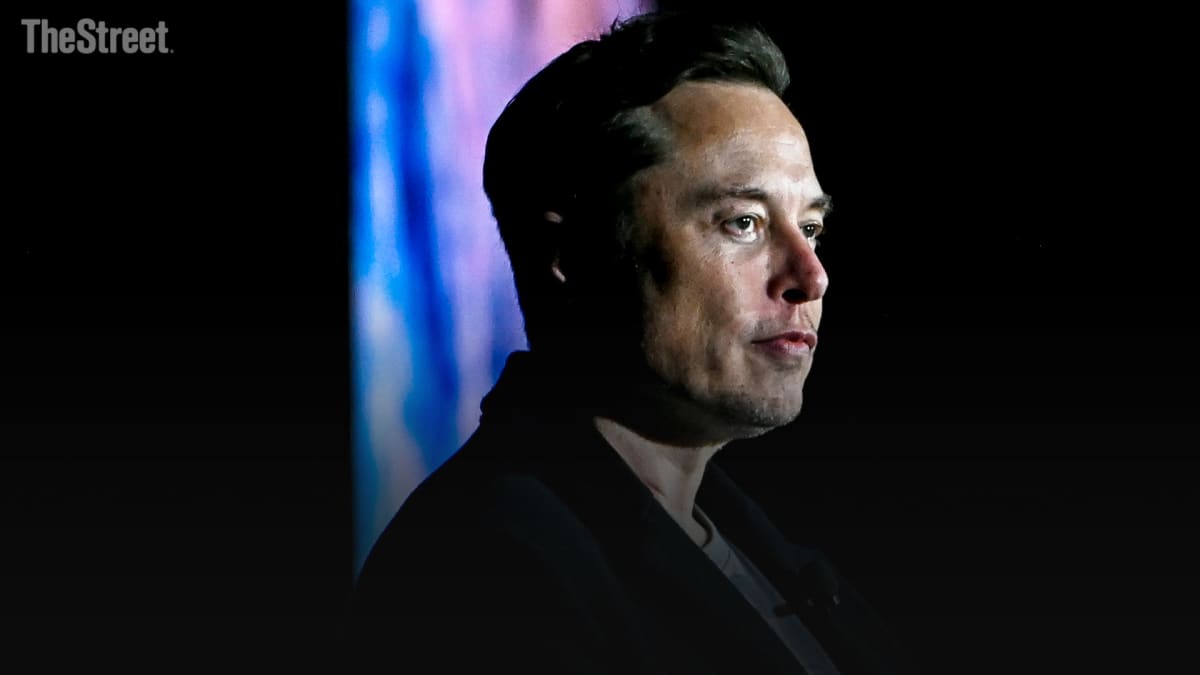
Elon Musk sees himself as a global CEO.
He gives his opinions on all issues without exception and does not care about the impact these opinions may have.
The billionaire CEO of Tesla (TSLA) and founder of SpaceX is a maverick who has built his influence and popularity in recent months by taking controversial positions and making thunderous statements on various subjects, including politics and the economy.
He has become one of the voices that matter, both domestically and internationally, capable of orchestrating, with a series of tweets, for example, a protest movement against a powerful international organization like the World Economic Forum. The last summit of the WEF, held in January at the traditional seaside resort of Davos in Switzerland, will be remembered more for the debate initiated by the billionaire on the usefulness of this forum than for the subjects discussed.
Banking Crisis + Russia-Ukraine War
Musk continues to take on this role of agitator, by positioning himself as the standard bearer for those who are determined to demolish progressive values in the new culture war. He gave a name to the enemy, the "woke mind virus," a catch all expression that encompasses gender identity, diversity in all its forms, and ESG - Environment, Social and corporate Governance.
It is with this in mind that the billionaire has just weighed in on the three responsible parties for the problems currently affecting Americans.
Millions of employees refuse to return to the office despite the calls of CEOs, like JPMorgan Chase's Jamie Dimon, who believe that the corporate culture is being lost with remote work. This new situation was caused by the covid-19 pandemic, which forced the authorities to impose lockdowns. The divisions in American society have also deepened between progressives and conservatives, leaving little room for centrists.
For a few weeks now, a banking crisis, the biggest since 2008, has shaken up investors and has already led to the failure of three U.S. banks — Silicon Valley Bank, Signature Bank and Silvergate Bank. Doubts persist about the soundness of many regional banks.
The irony is that this crisis has its roots in the measures put in place and in the monetary policy to avoid a recession when covid hit. The Federal Reserve, at the time, cut interest rates to almost 0 and the federal government flooded the households with money via stimulus packages.
This led the banks to invest in Treasury bonds and municipal bonds, whose returns were attractive. However, these banks did not protect themselves from the risk that interest rates might go up, a prospect that would again make money expensive.
The Fed has been forced to raise interest rates for several months to fight inflation fueled by the flooding of the economy with money during covid. This policy caused a depreciation of banks' asset portfolios and pushed bank customers to withdraw their deposits.
On the international stage, the Biden administration is witnessing the emergence of a Russia-China alliance within the framework of the Russia-Ukraine war. This conflict, caused by the invasion of Ukraine by Russia on Feb. 24, 2022, has entered its second year despite the efforts of NATO and its allies to isolate Russian President Vladimir Putin and NATO’s military support to the Ukrainian forces.
The lack of a visible end to this war seems to be impacting the opinion of some elected officials. The Republican Governor of Florida Ron DeSantis, a presumptive presidential candidate, referred to the Russia-Ukraine war as "a territorial dispute between Ukraine and Russia,” noting that "checking the economic, cultural and military power of the Chinese Communist Party” is vital.
DeSantis has since backtracked.
Dr. Fauci, Nuland and The Federal Reserve
But his remarks reflect the current uncertainty with some lawmakers who wonder whether continuing to support Ukraine is in the best national interest of the United States.
In January, a Gallup poll showed that 65% of U.S. adults favored the United States supporting Ukraine in reclaiming its territory, even if that results in a prolonged conflict. This figure has remained stable since start of the war. Meanwhile, 31% of the respondents continue to say they would rather see the U.S. work to end the war quickly, even if this allows Russia to keep its territory.
Musk is one of those who plead for a peace agreement. He has accused U.S. diplomats for being warmongers.
It is in this context that he has just agreed with tech investor David Sacks, who is also his friend, that the three responsible for the current problems facing Americans are Dr. Anthony Fauci, who was the face of the American response to the covid-19 pandemic, the Federal Reserve, which let inflation get out of control by printing money, and the U.S. Undersecretary of State for political affairs, Victoria Nuland.
"They're literally doing the opposite of what they are supposed to be doing. I mean just literally the opposite. It should be easy to replace them because it's so obvious they are failing, but you can't or it seems like you can't because again we can't get honest media coverage of the situation," tech investor David Sacks told conservative commentator Glenn Beck.
"Accurate," Musk agreed.
The Fed declined to comment.
Musk accused Nuland of not working towards a peaceful solution in the Russian war in Ukraine last month.
"Nobody is pushing this war more than Nuland," the billionaire said on Feb. 22.
Nuland responded two days after.
"I would start with a basic fact here .... which is if this war is to end, it could end tomorrow if Vladimir Putin chose to end it and to withdraw his troops" she said.
"So, this is not about us. This is about choices that Vladimir Putin has made to try to bite off pieces of his neighbor. And if we allow this as the United States, if we don't support the victim in this aggression, then this aggression will be replicated all over the planet in the years to come."







